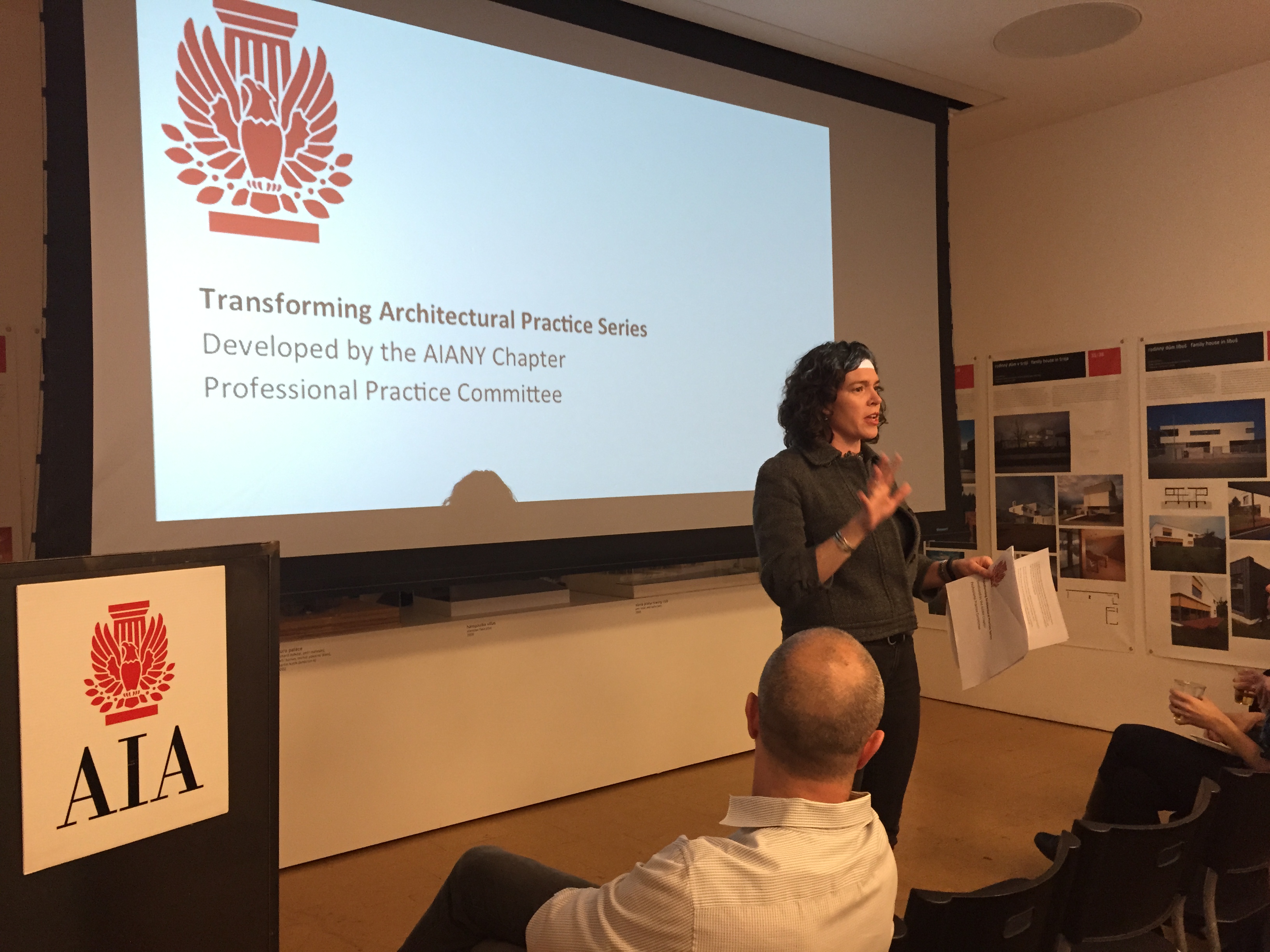by: chas
If you own a MacBook (or even if you don’t), perhaps you recall Apple’s campaign claiming it was the “world’s greenest notebook.” Beyond the exciting tagline, there was no real way for consumers to know whether this was an accurate statement. Dr. Leo Bonanni noticed the disconnect – the huge gap between sustainability claims and consumer information was the beginning of Sourcemap.
Sourcemap, of which Bonanni is founder and CEO, visualizes end-to-end supply chains with input from all along the chain, creating a social network of suppliers. In his “Transforming Architectural Practice” session on 03.16.15, entitled “Designing Sustainable Supply Chains,” Bonanni traced the evolution of his own practice, and the growing transparency of corporate sustainability claims. He also presented examples that demonstrate why understanding supply chains is not only a competitive advantages for businesses looking to be more transparent with their customers, but also crucial to improving overall function and productivity.
Bonanni had us consider an item that many carry all day, but likely don’t know much about – a smartphone. Through his own supply chain mapping and analysis, he learned that a phone contains every element on the periodic table (save the radioactive ones), travels to more than 50 countries, and passes through hundreds of thousands of hands before reaching the consumer. Through the growing networking of things, we can fill in the missing links to the raw materials that make up products we use every day. The advent of communication technologies and social media all over the world, including in formerly hard-to-reach regions, allows participants in the supply chain to communicate more directly and efficiently than ever before and opens up more channels for information sharing.
The opacity of supply chains is generally not due to any competitive advantage, but rather to a lack of knowledge at all levels about what goes into products and business processes; in fact, Bonanni has found that there is a significant competitive advantage to sharing supply chain information. It can help inform potential savings, or prevent or reduce the effects of catastrophic events – like at a GM plant in Shreveport, LA, which stopped production in 2011 when a crucial part from Japan was unavailable after the Fukushima disaster, or the response to the fuel shortage across the Northeast after Hurricane Sandy. With more information, we can anticipate and prepare for potential problems before they happen, rather than simply react once they do.
Lessons in understanding supply chains can be applied to all sorts of fields, including architecture and design. While many think the demand for sustainability and transparency in materials and processes is consumer-driven, Bonanni maintains that the bigger driver is recruiting and retaining top talent. Ultimately, pursuing this information is about understanding the impact of what you buy and use, and holding yourself and your suppliers accountable for sustainable practices. Over the last few years, more and more companies have uncovered some of the ways in which they do business, from Stonyfield to Apple (now offering much more information about their green claims). Overall, supply chains have actually gotten shorter and simpler, and today’s consumer expects to know more about what goes into the products they use – including buildings. With greater knowledge of, and accountability for, the sourcing and responsible use of materials, architects can strengthen their ties to clients, talent, and suppliers, and may discover new opportunities for operating more efficiently.
Event: Transforming Architectural Practice 2015: Designing Sustainable Supply Chains
Location: Center for Architecture, 03.16.15
Speaker: Leonardo Bonanni, Ph.D., Founder and CEO, Sourcemap
Organizer: AIANY Professional Practice Committee









